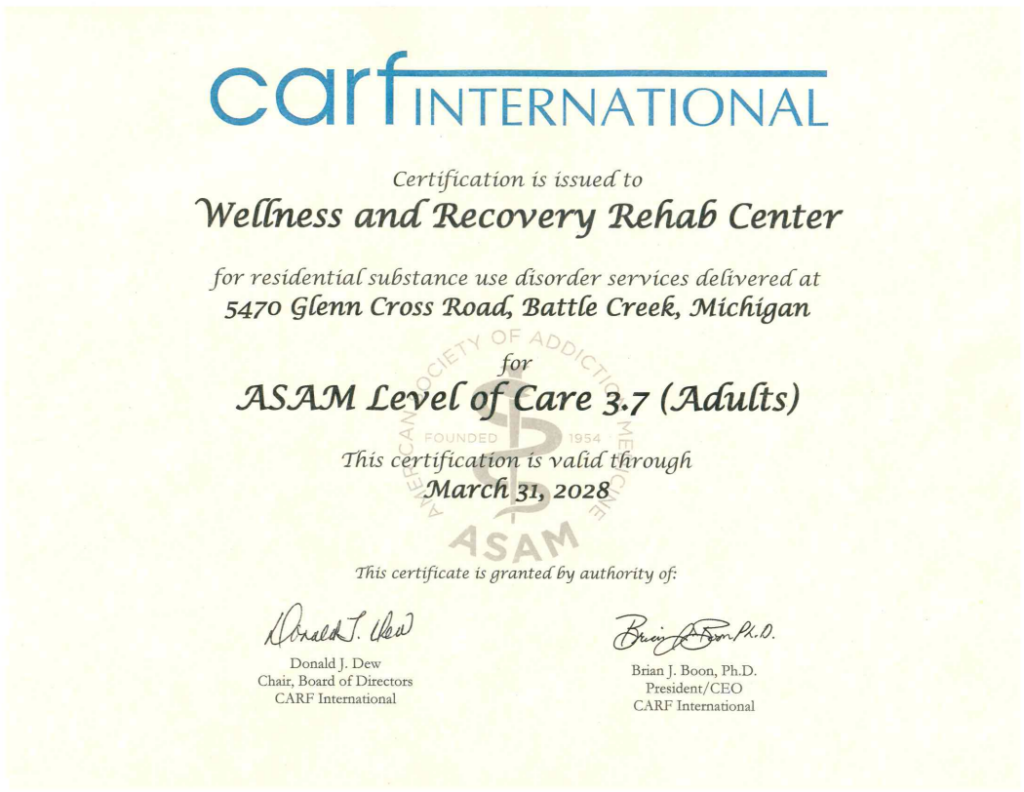Biology is a significant factor in an individual’s mental health. There are several risk factors for mental health problems that can indicate an individual’s potential struggle with symptoms, such as:
However, genetics are only part of the picture. Mental health is also shaped by a dynamic interplay between inherited traits, environmental influences, and lifestyle choices.
While a genetic predisposition may increase vulnerability, risk factors for mental health problems such as early life experiences, stress exposure, and access to supportive relationships can significantly impact mental well-being.
The brain operates through a complex network of neurotransmitters and chemical messengers like serotonin, dopamine, and norepinephrine that shape our emotions, thoughts, and overall mental well-being.
The relationship between physical and mental health is profound, with chronic illness often serving as one of the most significant risk factors for mental health problems.
The persistent stress of managing a long-term illness, coupled with the physiological impact on the nervous system, can leave individuals feeling overwhelmed, exhausted, and emotionally depleted.
Hormones serve as the body’s internal messengers, influencing everything from energy levels to emotional stability. When these chemical signals become unbalanced, the effects can extend far beyond physical health, impacting mood regulation, cognitive function, and overall mental well-being.
While these hormonal fluctuations are a natural part of life, persistent imbalances can heighten the risk factors for mental health problems.
An individual’s childhood experiences and environmental factors can also significantly impact their mental health.
Here are some of the most prevalent social risk factors for mental health problems:
Childhood is meant to be a time of growth, safety, and connection. Yet, for many, early years are shaped by adversity, experiences of abuse, neglect, or household dysfunction that leave lasting imprints.
Healing from these early wounds is possible. Trauma-informed therapy – such as the specialized care provided at Wellness and Recovery – creates a safe space for individuals to process their past with compassion and science-backed support.
Recognizing what the risk factors for mental health problems are helps us intervene early.
The demands of daily life, whether from work responsibilities, financial uncertainty, or personal struggles, can take a significant toll on mental health. When stress becomes chronic, the body and mind remain in a prolonged state of tension, increasing vulnerability to anxiety, depression, and burnout.
Work environments prioritizing productivity over well-being, especially those lacking support systems, can intensify these effects. Over time, this sustained pressure disrupts emotional regulation, sleep patterns, and even physical health, further amplifying risk factors for mental health problems.
Integrating mindfulness practices, engaging in therapy, and establishing consistent routines for rest and recovery are critical steps in safeguarding mental health.
Alcohol and drug use disrupt brain chemistry, sometimes as a means of temporary relief, but often at the cost of long-term emotional and cognitive well-being. These changes can intensify pre-existing conditions, creating a cycle where mental health challenges and substance dependence fuel each other.
The connection between financial stability and mental health is undeniable. When individuals face persistent financial strain, struggle to access quality healthcare, or lack a reliable support system, their emotional well-being can suffer.
Chronic stress from financial instability goes beyond immediate worries by shaping long-term mental health. When basic needs like housing and healthcare access are uncertain, the body remains in a prolonged state of stress, disrupting emotional regulation, cognitive function, and overall resilience.
Equitable access to mental health care is not just a necessity but a public health priority. Expanding affordable treatment options, increasing awareness about available resources, and fostering community support systems are essential steps in addressing these disparities.
Without the support of a strong social network, individuals may struggle with feelings of worthlessness, hopelessness, and chronic stress.
Through group therapy, peer support, and guided social engagement, we help individuals strengthen their sense of belonging.
There are several behavioral risk factors for mental health problems that can lead individuals needing professional care and treatment, such as:
When stress becomes a constant presence in daily life, it can take a profound toll on mental and emotional well-being. Without effective coping strategies, chronic stress may contribute to anxiety, depression, and emotional exhaustion.
Over time, this can disrupt cognitive function, weaken resilience, and increase risk factors for mental health problems.
Developing healthier coping mechanisms, such as mindfulness practices and structured therapeutic support, can foster long-term resilience. These strategies not only help regulate stress responses but also empower individuals to navigate challenges with greater emotional flexibility and self-awareness.
The way we think shapes the way we feel. When negative thinking patterns take hold – whether through self-criticism, catastrophizing, or persistent self-doubt – they can create a cycle that fuels mental health challenges.
These patterns don’t just influence mood; they can also impact motivation, relationships, and overall well-being.
Fortunately, these thought patterns are not set in stone. With the right support, individuals can learn to recognize cognitive distortions and shift their perspective. Therapy provides a structured space to explore these beliefs, challenge unhelpful narratives, and build self-confidence.
Unresolved trauma, including post-traumatic stress disorder (PTSD), can profoundly shape mental health and overall well-being. The lingering effects of trauma are not just psychological – they influence emotional regulation, cognitive processing, and even physical health.
Individuals who have experienced trauma may struggle with intrusive flashbacks, emotional detachment, or persistent feelings of unease that make everyday interactions and responsibilities feel overwhelming.
These symptoms can heighten stress responses, disrupt relationships, and contribute to other risk factors for mental health problems.
Healing from trauma requires more than just time; it calls for intentional interventions. Trauma-focused therapies have been shown to help individuals process distressing memories in a way that reduces their emotional intensity.
While setting high standards can be motivating, an unrelenting drive for flawlessness can lead to chronic stress, anxiety, and burnout.
Over time, the fear of falling short may foster a cycle of self-criticism and dissatisfaction, making it difficult to experience a true sense of accomplishment.
This pattern is especially concerning when perfectionism intersects with other risk factors for mental health problems, such as low self-esteem or imposter syndrome. Believing that anything less than perfect is unacceptable can erode self-worth, reinforcing the idea that mistakes define one’s value.
Cultivating self-compassion offers a way to break this cycle. By shifting the focus from rigid perfection to meaningful progress, individuals can foster resilience and emotional balance.
You can help prevent mental health symptoms by adopting a series of practical and effective prevention strategies, such as:
Resilience is the foundation of emotional well-being, allowing individuals to face life’s challenges without becoming overwhelmed.
A strong support system, whether through close relationships, community connections, or professional guidance, helps foster resilience. Equally important is the ability to recognize emotional responses and patterns that influence behavior to better navigate stress in a healthy way.
Practicing stress management techniques, such as mindfulness and deep breathing, further strengthens resilience. They help regulate emotions and prevent prolonged distress, reducing the impact of risk factors for mental health problems. Over time, resilience becomes a skill that can be cultivated.
Navigating life’s challenges calls for intentional strategies that support emotional well-being. Incorporating mindfulness, regular physical activity, and therapy into daily routines can be transformative for mental health.
Engaging in reflective practices like journaling can also foster self-awareness, providing a structured way to express thoughts and emotions. Grounding techniques – such as using the five senses to reconnect with the present – are particularly effective in managing stress and emotional distress.
Mental health challenges rarely emerge overnight. Often, subtle shifts in mood, behavior, or thinking patterns signal an underlying struggle long before it becomes a crisis.
Identifying these early warning signs, such as persistent sadness, withdrawal from loved ones, or changes in sleep and appetite, can be a crucial first step in preventing more severe mental health conditions from developing.
Seeking professional support early on is one of the most effective ways to safeguard emotional well-being. Therapy provides a space to process emotions, build coping strategies, and develop insight into patterns that may be contributing to distress.
Effective mental health care goes beyond symptom management; it requires a comprehensive approach that addresses the root causes of emotional distress. Professional treatment programs, such as those offered at Wellness and Recovery, provide personalized care designed to support long-term healing.
These programs recognize that mental health challenges often stem from a combination of biological, psychological, and environmental influences. This includes risk factors for mental health problems such as trauma, chronic stress, and genetic predisposition.
A truly effective treatment plan integrates multiple therapeutic approaches, ensuring that each individual receives care tailored to their unique needs.
Recognizing the risk factors for mental health problems is essential for fostering emotional well-being.
No one should have to face these difficulties alone. At Wellness and Recovery, we provide compassionate, evidence-based care tailored to each person’s unique needs, offering support that fosters lasting healing and personal growth.
Wellness and Recovery is dedicated to helping individuals understand and address the risk factors for mental health problems. Our comprehensive approach includes thorough assessments to identify potential vulnerabilities, such as genetic predispositions, trauma history, or lifestyle factors.
Our personalized treatment plans are geared toward addressing these specific risk factors, utilizing evidence-based therapies and preventive strategies to promote healing and long-term well-being.




